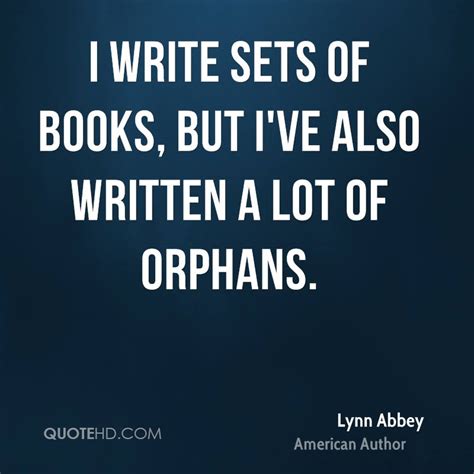A Quote by Dean Koontz
Is rule of thumb in writing game: if story requires many long descriptions of smells so vile that will give reader nausea, is not likely to find publisher.
Related Quotes
I'll give you the sole secret of short-story writing, and here it is: Rule 1. Write stories that please yourself. There is no rule 2. The technical points you can get from Bliss Perry. If you can't write a story that pleases yourself, you will never please the public. But in writing the story forget the public.
My greatest strength as a writer is that I'm a storyteller. But, it was a long, hard struggle for me to make the transition from verbally telling stories to writing them. You'll note I don't dwell on descriptions in my writing, because I'm far more interested in telling the story. There are many better writers in this world, but you'd be hard pressed to find anyone more passionate about stories than I am.
Good writing is good writing. In many ways, it’s the audience and their expectations that define a genre. A reader of literary fiction expects the writing to illuminate the human condition, some aspect of our world and our role in it. A reader of genre fiction likes that, too, as long as it doesn’t get in the way of the story.
The most difficult part of writing a book is not devising a plot which will captivate the reader. It's not developing characters the reader will have strong feelings for or against. It is not finding a setting which will take the reader to a place he or she as never been. It is not the research, whether in fiction or non-fiction. The most difficult task facing a writer is to find the voice in which to tell the story.
Too many writers think that all you need to do is write well-but that's only part of what a good book is. Above all, a good book tells a good story. Focus on the story first. Ask yourself, 'Will other people find this story so interesting that they will tell others about it?' Remember: A bestselling book usually follows a simple rule, 'It's a wonderful story, wonderfully told'; not, 'It's a wonderfully told story.'
In the long run, the quality of your work is all that matters. That is your only resumé. Be professional. Make sure your editor or publisher can always reach you. Do what's asked of you if your conscience can bear it. But know that, five years from now, as fans or prospective employers are looking over your published pages, no one will care that this story sucks because the publisher moved the deadline up or because the editor made you work an android cow into the story. All they will care about is what they see in front of them, and they will hold you responsible for it, no one else.
It's insane to be a writer and not be a reader. When I'm writing I'm more likely to be reading four or five books at once, just in bits and pieces rather than subjecting myself to a really brilliant book and thinking, "Well what's the point of me writing anything?" I'm more likely to read a book through when I take a break from writing.
The thing to remember when you're writing," he said, " is, it's not whether or not what you put on paper is true. It's whether it wakes a truth in your reader. I don't care what literary device you might use, or belief systems you tap into--if you can make a story true for the reader, if you can give them a glimpse into another way of seeing the world, or another way that they can cope with their problems, then that story is a succes.
When discouraged some people will give up, give in or give out far too early. They blame their problems on difficult situations, unreasonable people or their own inabilities. When discouraged other people will push back that first impulse to quit, push down their initial fear, push through feelings of helplessness and push ahead. They're less likely to find something to blame and more likely to find a way through.
Kids, if anything, are harder to write for because they are a more discerning audience. They will not stay with you if you go off on a tangent or if you give them extraneous information that doesn't serve the story. You really have to tell a tight story. You have to give them humor and suspense and believable characters. All those things that adults want too, but you have to be really on your game when you're writing for kids.
History is the art of making an argument about the past by telling a story accountable to evidence. In the writing of history, a story without an argument fades into antiquarianism; an argument without a story risks pedantry. Writing history requires empathy, inquiry, and debate. It requires forswearing condescension, cant, and nostalgia. The past isn’t quaint. Much of it, in fact, is bleak.

































